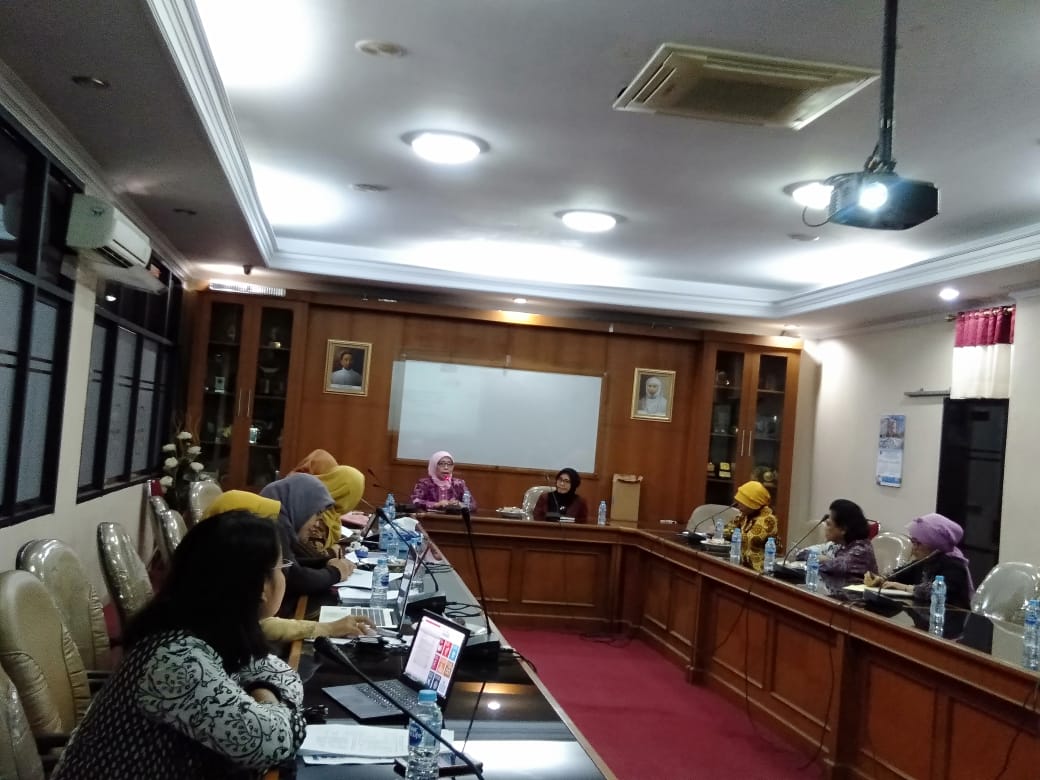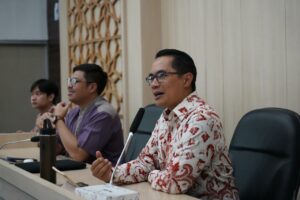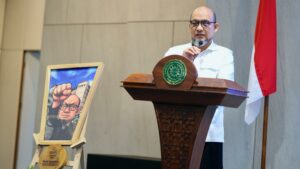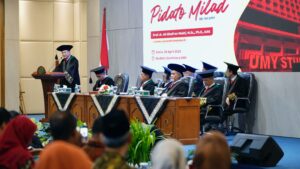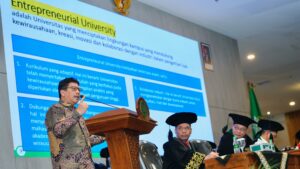Muhammadiyah Tobacco Control Centre (MTCC) Universitas Muhammadiyah Yogyakarta (UMY) collaborating with STIE Ahmad Dahlan Jakarta conducted a Muhammadiyah tobacco control consolidation meeting at Muhammadiyah’s Gedung Dakwah, Menteng Raya, Jakarta on Friday (25/1). It aimed to solve poverty problems and to do stunting through taps ban and taxation advocacies in a tobacco control field. Besides, this meeting was also addressed to insist government to increase tobacco excise.
Program Director of MTCC of UMY dr. Supriyatingsih, Sp.OG informed that a regulation from Ministry of Finance (Peraturan Menteri Keuangan) No. 146/PMK.03/2017 on Tobacco Excise Tariff regulates the increase of excise tariff and simplify an excise tariff structure for Sigaret Kretek Tangan (SKT), Sigaret Kretek Mesin (SKM), and Sigaret Putih Mesin (SPM). This increase aims to prevent cigarettes from being consumed by children, teenagers, and poor households so that Healthcare and Social Security Agency (BPJS) will be sufficient financially.
She continued, “Data showed that tobacco consumption causes many catastrophic diseases. This regulation consistency is vital to build work certainty for all parties. Indeed, this regulation has been discussed through a study and long standing campaign.”
Meanwhile, Vice Director of MTCC UMY Dianita Sugiyo stated, “There was politicization in the regulation making and it was disappointing that a plan to increase tobacco excise tariff in 2019 was revoked. The cancelation, essentially, affects an increase of poverty rate and health issues of youths. The condition indicates government’s failure in at protecting a golden generation of Indonesia.”
Additionally, a discussion on the Universal Health Coverage (UHC) Study and Family Development Index was conducted at Presidential Staff Office on 11 January. It involved academicians, researchers, and practitioners as participants and respondents. One of the respondents was Head of Maternal and Child Health Movement (GKIA – Gerakan Kesehatan Ibu dan Anak) who concurrently occupied as Project Director of Muhammadiyah Tobacco Control Centre of UMY. The discussion revealed a phenomenon underlying results of Riskesdas 2018.
“Results of discussion showed that several problems are strongly related to smoking habits. For instance, GEMAS programs have not entirely been implemented, particularly a lifestyle to encourage people to consume vegetables and fruits. The study on Universal Health Coverage done by HNRC-IMERI of FKUI proved that BPJS’ load of payments was mostly spent to handle non-communicable diseases (65 percent) which one of the causes was the highly smoking prevalence number Indonesia. Riskesdas also showed a significant increase of ages of 10-18 years,” explained Dianita.
She added, “The presence of Industrial Tobacco Output (IHT) demonstrated that cigarettes bring negative impacts for people’s health. In the middle of cigarettes’ contending values, government’s involvement was needed to control cigarette production and consumption. One of the means to overcome the issue is to raise tobacco excise tariffs.”
